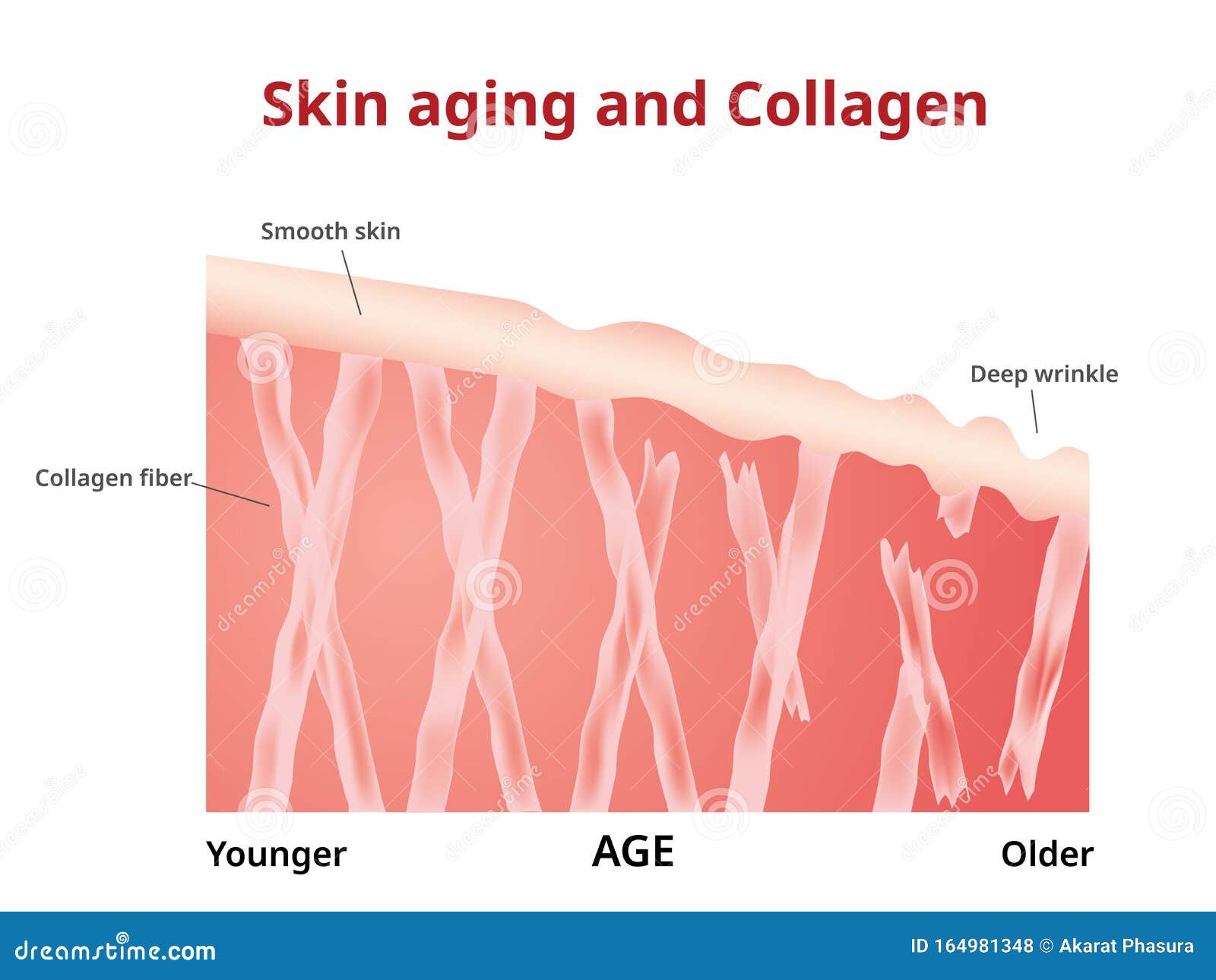Collagen is often heralded as the foundation of youthful skin, serving as a vital structural protein that maintains skin elasticity, firmness, and overall integrity. As we age, the natural production of collagen diminishes, leading to visible signs of aging such as fine lines, wrinkles, and sagging skin. Understanding when collagen production decreases and the implications for skin health is essential for both preventative care and effective skin treatment.
The Role of Collagen in Skin Health
Collagen is the most abundant protein in the human body, comprising approximately 30% of total protein content. It is a crucial component of skin, connective tissues, and bone. Within the skin, collagen fibers form a network that provides strength and elasticity, enabling the skin to maintain its shape and resist external stressors. Over time, factors such as environmental damage and intrinsic aging lead to a decline in collagen synthesis, resulting in a compromised skin structure.
Age-Related Decline in Collagen Production
Generally, collagen production begins to taper off in the mid-20s. Studies show that individuals may lose about 1% of collagen per year after the age of 30. By the time a person reaches 40, collagen levels can be significantly lower than when they were in their 20s. This gradual decline is exacerbated in women during menopause, where hormonal changes lead to an accelerated loss of collagen, often quantified at about 30% within the first five years post-menopause.
Factors Influencing Collagen Production
While age is a primary factor, several external influences also play a significant role in collagen degradation. These can be categorized as:
- Sun Exposure: Ultraviolet (UV) rays from the sun can cause photoaging, leading to the breakdown of collagen fibers and impeding new collagen synthesis.
- Pollution: Environmental pollutants can generate free radicals that damage collagen fibers and speed up the aging process.
- Dietary Habits: Diets lacking in nutrients essential for collagen production, such as vitamin C, protein, and antioxidants, can hinder the body’s ability to produce this vital protein.
- Smoking: The toxins in cigarette smoke can adversely affect collagen and elastin production, contributing to premature skin aging.
- Stress: Elevated levels of stress can increase cortisol production, which may negatively impact collagen synthesis.
Visible Signs of Aging Skin
The reduction in collagen production manifests in several physical characteristics of aging skin. Common symptoms include:
- Fine Lines and Wrinkles: As collagen diminishes, skin loses its firmness, making fine lines more prominent and leading to deeper wrinkles.
- Loss of Elasticity: The skin may begin to sag due to reduced elasticity caused by dwindling collagen levels.
- Dryness and Thinning: A decrease in collagen can lead to a lack of moisture retention, resulting in dry and less plump skin.
- Rough Texture: The skin can become uneven in texture as the structural integrity weakens, making it feel coarse or rough to the touch.
Collagen and Skincare: The Interplay
Given the pivotal role of collagen in skin health, many skincare products boast collagen-boosting properties. Ingredients such as retinoids, peptides, and hyaluronic acid are frequently highlighted for their ability to stimulate collagen production or improve skin appearance. However, the effectiveness of topical collagen is often debated, as large collagen molecules may not penetrate the skin barrier effectively.
Nutrition’s Role in Collagen Support
A diet rich in specific nutrients can play a significant role in supporting collagen production. Essential components include:
- Vitamin C: A crucial co-factor in collagen synthesis, vitamin C plays an active role in stabilizing and cross-linking collagen molecules.
- Amino Acids: It is essential to consume amino acids, particularly glycine and proline, which are building blocks of collagen. Sources include bone broth, fish, eggs, and dairy.
- Antioxidants: Antioxidants help combat oxidative stress, thus protecting collagen from damage. Foods rich in antioxidants include berries, nuts, and dark leafy greens.
Modern Interventions: Supplements and Treatments
A myriad of collagen supplements, ranging from powders to pills, claim to enhance skin hydration and elasticity. While some studies suggest potential benefits, results can vary, and more research is often needed. Additionally, professional treatments such as laser therapy, dermal fillers, and micro-needling can provide more immediate enhancements by promoting collagen production and improving skin texture.
Conclusion: Embracing Aging while Caring for Skin
Aging is a natural process marked by a progressive decline in collagen production, influencing physical appearance and skin health. A combination of protective measures, nutrient-rich diets, and targeted skincare can mitigate some effects of aging and support the body’s natural collagen synthesis. As the understanding of collagen’s role in skin health evolves, embracing effective strategies becomes paramount in maintaining youthful, vibrant skin over the years.

